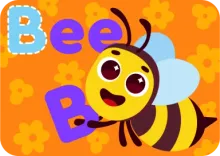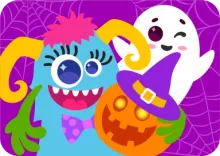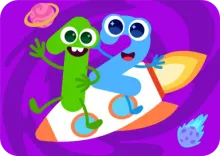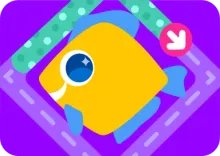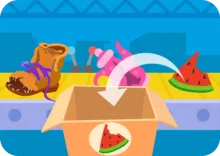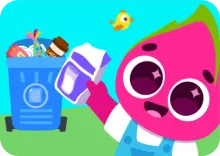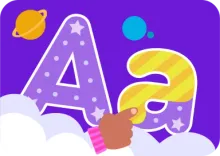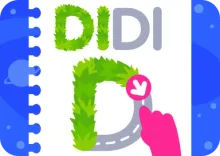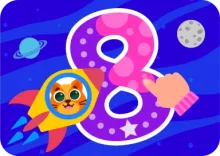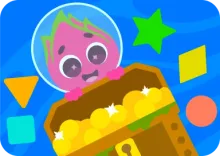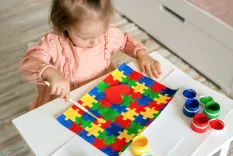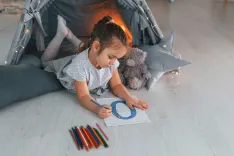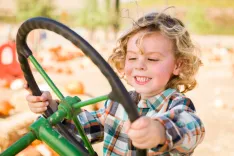Uncover mysteries and unlock your child’s potential – Guessing Games will help
Guessing games help kids practice listening, describing, and thinking flexibly. These playful activities build vocabulary and memory while encouraging turn-taking and laughter—great for groups or family time.

Guessing games for kids to build vocabulary and critical thinking
What do a whisper and a sudden “Eureka!” have in common? It’s the magic of guessing games – simple yet surprisingly powerful activities that captivate children of all ages. From the basic “What’s in my hand?” to complex “Detective clubs”, these activities do more than just entertain; they awaken the researcher, the logician and the creator inside every child.
Guessing games are not just a way to pass the time. They are a unique opportunity to develop logic, creativity, intuition and essential social skills in a light and enjoyable format. Let’s dive into the world of “guessing” and discover how these games help children grow and why they remain one of the most valuable tools in every parent’s toolkit.
Why play guessing games? Secrets of development hidden in every question
Every riddle, every question in a guessing game is a mini workout for a child’s brain, launching a cascade of cognitive processes.
Intuition and deduction in action
At the core of any guessing game lies the process of logical thinking and deduction. Random guessing will not work here; one must analyze each clue, eliminate incorrect options, narrow down possibilities and build logical chains. This does not go unnoticed – it develops analytical skills, teaches children to ask precise, clarifying questions and process information effectively.
Creativity and language: from hint to guess
Children's guessing games are also an excellent exercise for creativity and language development. The one giving the clues needs to come up with interesting and somewhat ambiguous hints so that the game is neither too easy nor impossible. This stimulates inventive thinking and the ability to think “outside the box”. At the same time, the guesser has to actively use their vocabulary to correctly understand the hints and formulate their guesses.
A social bridge – guessing together
Many guessing games for children are team or group games, which become a great platform for developing social skills. In different tasks or team charades, children learn to listen to each other, cooperate, have dialogues, make joint decisions and cope with uncertainty. They learn the value of active listening and patience and also learn to accept both their own and others’ mistakes, developing empathy and the ability to lose gracefully.
Concentration and confidence
To guess a riddle, it is necessary to concentrate fully on the hints and maintain focus. This need for concentration and attention trains a child’s focus. And the moment when inspiration strikes and the child shouts out the correct answer is a real boost of pride. Each such success significantly raises self-esteem, strengthens confidence in their own intellectual abilities and motivates further learning and exploration.

Help your child
grow with Keiki
We’ll help you turn everyday screen time
into real learning progress.
Your guessing games – ideas for any age and situation
The beauty of educational guessing games is their flexibility. You can start playing right now without any special preparation or materials.
Word marathons: games for any conditions and without preparation
These offline guessing games for children are perfect for spontaneous fun in the car, on a walk or just at a family dinner. They are also great as waiting room games:
- I spy game for kids. Start with simple hints for toddlers aged 3–4 (“I spy something red”). For older children, make it harder: “I spy something that starts with the letter D” or “I spy something you can find in the forest that is home to a squirrel.” This develops observation skills and phonemic awareness.
- “Who am I?”. Think of an animal, profession, cartoon character or famous person. Players ask questions that can only be answered with “yes” or “no” (“Do you live in water?”, “Do you have wings?”).
- 20 questions game for kids. This is a true classic. Think of any object, and other participants can ask up to 20 questions to guess it. All questions must be “yes/no”. This perfectly trains deductive reasoning in kids aged 6+.
- “What’s in the bag?”. Put several familiar objects of different shapes, textures and weights (a pine cone, a toy car, an apple, a block) in an opaque bag. Let the child guess by touch what it is. Perfect for toddlers aged 2–4 to develop sensory perception.
These games develop speech, logic, attentiveness and easily adapt to any situation, making them ideal road trip games.
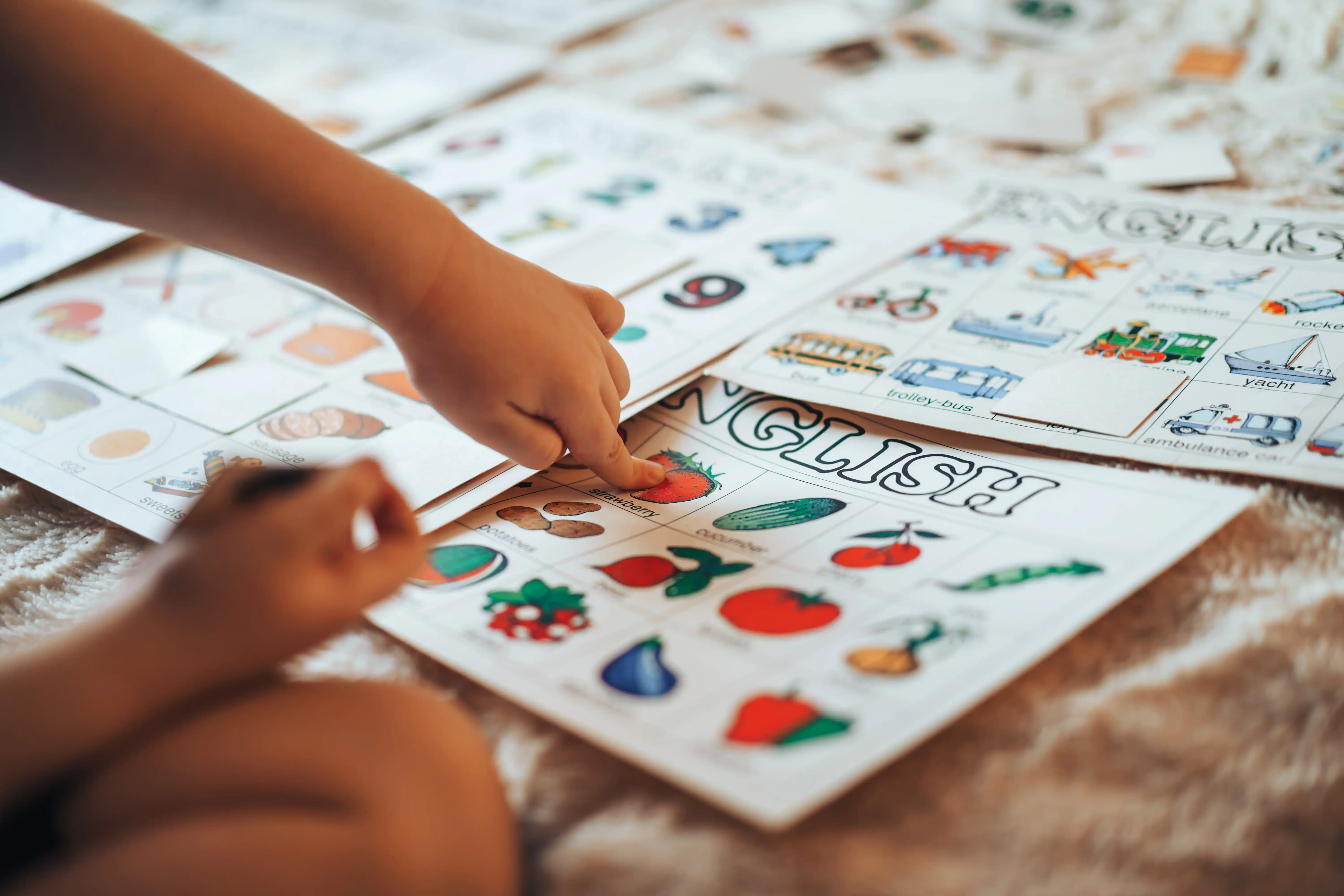
“Detective club” at home – games that need a little preparation
These games require a bit more creativity from parents but promise an exciting dive into investigation.
- Guess the sound. Record or play various familiar sounds (running water, hammer hitting, hair dryer, animal voices). Let children guess the source of the sound. You can even record your own sounds at home. Suitable for all ages starting from 2–3 years old.
- Riddles with hidden meaning. These are riddles for older kids that require out-of-the-box thinking. For example: “A man left the house, ran a little and died. What happened?” (Answer: he was playing Monopoly and landed on the ‘Jail’ space). They teach kids to think beyond the obvious and develop critical thinking skills for older kids.
- Guess what happened. Think of an unusual or funny situation/event and ask children to reconstruct what happened by asking questions. Start with simple scenarios and gradually make the tasks harder. This is the best detective guessing game for children.
- Home treasure hunt guessing game. Hide a “treasure” (for example, a favorite toy or a treat) and leave a series of riddle hints that lead the child from one place to another until they find the hidden item.
These creative thinking games for kids train observation, hypothesis building and develop associative thinking.
Related Games in Keiki App
Digital magic – online guessing games for kids in Keiki and beyond
In today’s world, technology can not only distract but also become a powerful addition to traditional games, offering interactive formats and new development opportunities. The Keiki app does not have guessing games, but it lays the foundational skills needed for playing them. For example, matching tasks. Matching pictures, shapes, sounds, words or even emotions develops visual perception, logical thinking and the ability to find patterns – key skills for guessing.
Logic Puzzles Games are another popular category. Sorting tasks, classification, finding the extra item and building sequences train deductive abilities and analytical thinking.
Through engaging activities, interactive books and stories, Keiki helps children expand their vocabulary, which directly affects their ability to understand hints and formulate answers.
Popular guessing game apps for kids
There are many specialized online riddle games for children available in great apps, which we have collected:
- Heads Up! – a fun mobile game where a player holds the device on their forehead while others give clues to guess the word on the screen.
- Akinator: The Digital Genie – guesses the character you are thinking of by asking simple questions. A great demonstration of the power of deduction.
- Word Search apps – apps with word searches that help expand vocabulary and train attention and perseverance.
Digital guessing games offer interactivity, instant feedback and a variety of formats, making learning engaging and preparing children for more complex intellectual tasks.
Build real skills through fun, educational games for your child
Try KeikiTips for parents to make guessing games truly beneficial
To ensure brain games for children bring maximum benefit and joy, parents should not just be participants but wise hosts and supportive players. Here are some useful tips:
- Adaptation is key. Always adjust the game’s difficulty and riddles to your child’s age and development level. Start with simple things. For toddlers, guessing colors; for first graders, something more complex. This ensures the child feels capable and interested.
- Quality of hints. The art of giving hints is finding the “golden mean”. They should not be too obvious to keep the intrigue but not too hard to avoid frustration.
- Patience is a virtue. Give the child enough time to think. Do not rush them and do not give the answer right away if they hesitate. Let them feel the thrill of intellectual effort.
- Celebrate the process, not just the win. The main thing in guessing games is not who guessed first but the process of thinking, communicating and having fun. Praise the child for trying, for interesting guesses, even if they turned out to be wrong.
- Mistakes are steps. If the child makes a mistake, do not criticize. Use this moment as a learning opportunity.
Kids riddle games are not just fun time-fillers; they are a true treasure chest for developing the mind, speech, social skills and creativity of your child. They teach children not just to know but to think – to analyze, hypothesize, ask questions and find non-obvious connections.

